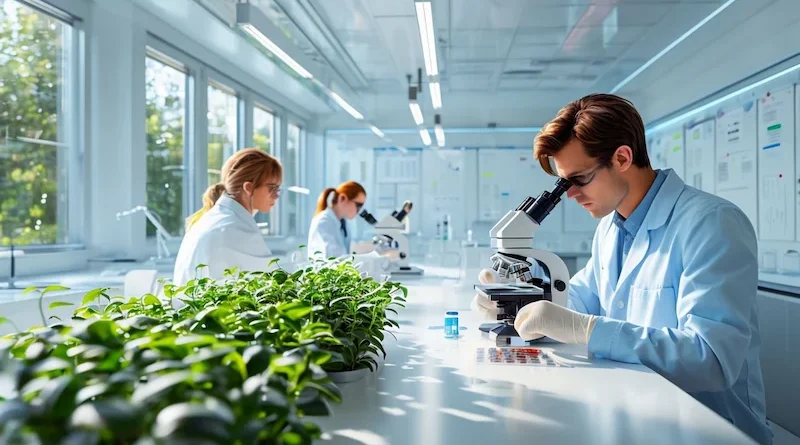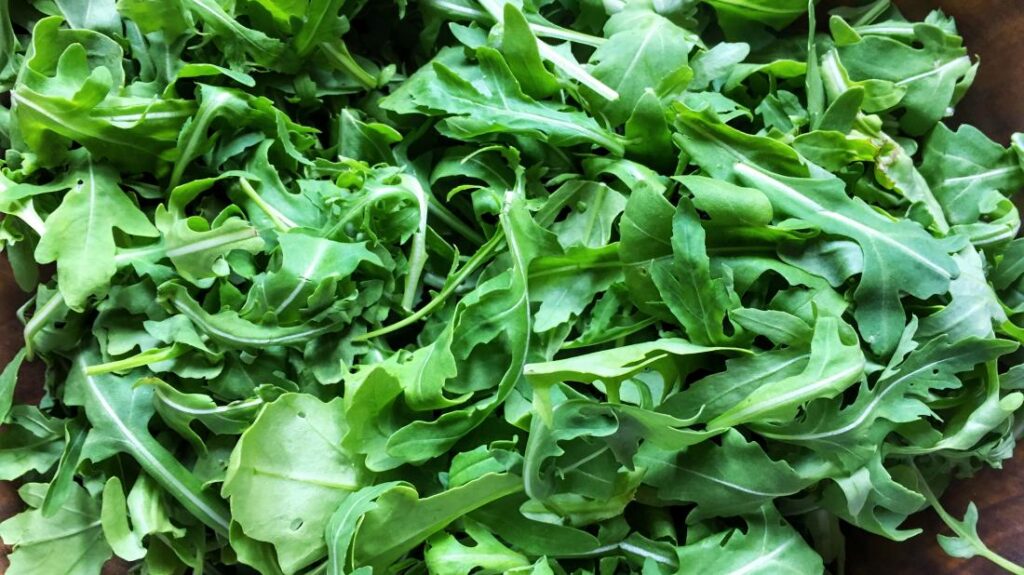
18 Jun Arugula Researcher At Cambridge – Uncovering the Superfood Secrets of Rocket Greens!
In the realm of leafy greens, arugula—known in Europe as rocket—often plays a supporting role. Yet this vibrant, peppery plant is stepping into the spotlight thanks to rigorous, innovative research led by plant scientists at the University of Cambridge. With a growing focus on functional foods, climate-resilient agriculture, and disease-preventive diets, arugula is now being studied for its genetic, nutritional, and medicinal potential.
Behind the scenes, the arugula researcher at Cambridge is more than just a botanist—they’re part of a global movement to redefine how we grow, consume, and understand food in the 21st century.
🌿 What Is Arugula and Why Is It So Important?
Arugula (Eruca vesicaria) belongs to the Brassicaceae family, which also includes kale, broccoli, and cabbage. What sets it apart is its high concentration of bioactive compounds that not only support human health but also thrive under sustainable farming conditions.
Nutritionally, arugula is a powerhouse:
- Rich in glucosinolates, known for their cancer-fighting capabilities
- Contains folate, potassium, calcium, vitamin C and vitamin K
- Naturally high in nitrates, which improve cardiovascular and muscular performance
- A source of polyphenols and antioxidants linked to anti-aging and anti-inflammatory effects
It’s these qualities that have attracted the attention of scientists—particularly those at the University of Cambridge, where food systems and human health are a growing research priority.
🧬 The Role of the Arugula Researcher at Cambridge

Within the Department of Plant Sciences, Department of Biochemistry, and collaborative hubs like the Cambridge Global Food Security Initiative, researchers are working across disciplines to study arugula from seed to salad.
Their focus includes:
- Plant genetics and bioengineering to enhance nutrient density
- Functional metabolomics to understand how arugula’s compounds work in the body
- Climate-resilient agriculture for low-input, high-output crops
- Human clinical studies on nitrate metabolism and inflammation control
- Soil-plant interaction studies to improve yield and sustainability
Lead researchers often collaborate with nutritionists, chemists, public health officials, and even data scientists to map how this green leafy vegetable can contribute to global food and health systems.
🔬 Key Areas of Research
1. Nitrate Absorption and Vascular Health
Arugula is one of nature’s richest sources of dietary nitrates. Cambridge researchers are studying how these nitrates convert into nitric oxide, which:
- Expands blood vessels
- Reduces blood pressure
- Enhances physical performance
- Improves oxygen delivery during workouts
Their findings may shape future dietary recommendations for athletes and cardiovascular patients alike.
2. Anti-Cancer Potential through Glucosinolates
Arugula contains glucoraphanin, a glucosinolate that metabolizes into sulforaphane—a potent anti-carcinogen. Ongoing studies at Cambridge explore:
- How soil, climate, and storage impact these compounds
- The optimal consumption levels for disease prevention
- Genomic modifications to boost glucosinolate yield
3. Climate-Smart Agriculture
Using controlled growth chambers and real-time climate data, arugula researchers are evaluating:
- How temperature changes affect phytochemical density
- Whether arugula can be grown efficiently in urban vertical farms
- The ideal combinations of light, water, and CO₂ for sustainable output
These insights are critical for farming in drought-prone regions and post-industrial urban zones.
4. Flavor Genetics and Consumer Acceptance
While taste might seem like a minor issue, flavor is a major barrier to consumption. Cambridge’s food psychology teams work with plant biologists to decode the genetic origins of arugula’s bitterness, aiming to:
- Develop strains with customized flavor profiles
- Match flavor preferences by age, culture, and region
- Increase public adoption through sensory experience optimization
🧑🔬 Spotlight on the Researcher: A Hypothetical Profile

Let’s imagine Dr. Priya Merton, a fictional yet plausible Cambridge researcher leading this initiative.
- Background: PhD in Plant Molecular Biology, with postdoctoral work in Nutritional Genomics.
- Research Interests: Plant-based bioactives, nutrient density enhancement, genome editing for climate resilience.
- Achievements:
- Led a 3-year study on nitrate bioavailability in leafy greens.
- Published in The Lancet Planetary Health on the role of arugula in sustainable diets.
- Collaborated with the UK Food Standards Agency on labeling nitrate-rich crops.
- Led a 3-year study on nitrate bioavailability in leafy greens.
Dr. Merton’s work represents the convergence of ancient nutrition and modern biotechnology.
🌍 Global Impact and Applications of Arugula Research
This research goes far beyond the lab. It has real-world implications for:
✅ Sustainable Farming
Farmers can adopt Cambridge-tested growing methods to reduce pesticide use and maximize nutrient output with fewer resources.
✅ Public Health Policies
Nutritionists and policymakers use findings to recommend plant-based diets that are both accessible and preventive against chronic illness.
✅ Sports Performance Supplements
Athletic supplement companies are incorporating arugula-based nitrate extracts into performance-enhancing formulations.
✅ Urban Agriculture
Startups and municipal food programs are deploying Cambridge-licensed arugula strains in hydroponic and vertical farming systems.
🧠 Arugula in Education and Innovation
In addition to research, Cambridge promotes education on food innovation, using arugula as a case study for:
- Climate-resilient agriculture
- Ethical genetic editing
- Plant-based disease prevention
- Localized food economies
These case studies appear in sustainability courses, biotech programs, and international food innovation summits.
Frequently Asked Questions
Q1: Is arugula really that nutritious?
Yes. Cambridge-led studies confirm it’s a top source of natural nitrates, antioxidants, and cancer-fighting compounds.
Q2: Why is Cambridge studying arugula and not other greens?
While many greens are studied, arugula’s unique flavor, fast growth, and nutrient density make it an ideal subject for multidisciplinary research.
Q3: Can I grow Cambridge-researched arugula at home?
Some improved strains may be made available through seed licensing or university extensions in the future.
Q4: Does arugula lower blood pressure?
Studies suggest its natural nitrates support vascular health, but results depend on diet and health conditions.
Q5: Are there risks to eating too much arugula?
In rare cases, excessive nitrate intake could be problematic for those with certain health conditions. Moderation is key.
Q6: What other universities research arugula?
While Cambridge leads in Europe, institutions like UC Davis, Wageningen University, and others are also exploring Brassica crops.
✅ Conclusion: The Quiet Power of Arugula and the Brilliance Behind the Research
The arugula researcher at Cambridge may not be a household name, but their work shapes what ends up on our plates—and how it affects our health and planet. As global challenges mount, from climate change to chronic disease, small yet powerful plants like arugula could hold the key to more sustainable, healthy futures. By merging ancient wisdom with modern science, Cambridge researchers are proving that even the humblest leafy green can spark global transformation—one harvest, one lab test, and one breakthrough at a time.

No Comments